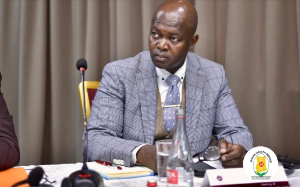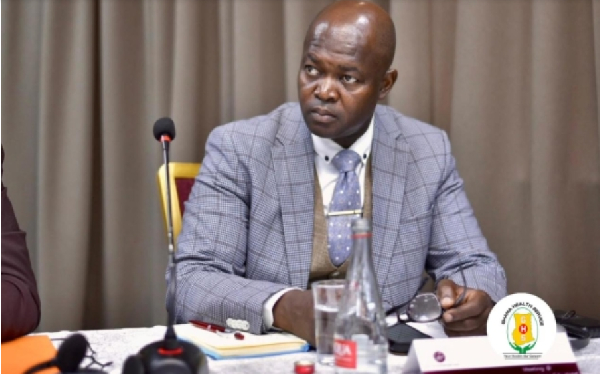 Professor Samuel Kaba Akoriyea is the Director General of the Ghana Health Service
Professor Samuel Kaba Akoriyea is the Director General of the Ghana Health Service
Professor Samuel Kaba Akoriyea, Director General of the Ghana Health Service (GHS), says the country’s progress in Family Planning (FP) risks reversal if sustainable financing measures are not secured to ensure the availability and security of FP commodities.
He said the recent disruptions in external funding called for greater domestic investment to protect contraceptive supply and secure gains made in reproductive health.
Prof Akoriyea, in a speech read on his behalf at the launch of the 2025 National Family Planning Week in Accra, stressed that Ghana must strengthen its own systems and financing mechanisms to ensure that her family planning programme remained on track.
The FP week slated for September 26 to October 3 is on the theme: “Empowering Choices, Strengthening Families, for Ghana’s Future.”
The Director-General said family planning was not only about access to contraceptives but also about giving individuals and families the ability to make informed decisions that shape their lives and strengthen the nation’s future.
“Let us also remember that FP is about addressing the unique needs of adolescents, women in rural areas, people with disabilities, and marginalized groups. It is about reducing inequalities, breaking down social and cultural barriers, and ensuring that family planning services are rights-based, inclusive, and responsive,” he said.
He said Ghana had made steady progress in family planning through improved access to modern methods, effective policies, and the dedication of health workers across the country.
While acknowledging the support of partners such as the United National Population Fund (UNFPA) and the West African Health Organisation (WAHO), he called for an integration of family planning more deeply into universal health coverage.
The Director-General said family planning services must remain rights-based and inclusive, reaching adolescents, women in rural areas, persons with disabilities, and marginalized groups.
He reaffirmed Ghana’s commitment to achieving its FP2030 and Sustainable Development Goal targets through renewed urgency and collaboration with development partners, civil society, and the private sector.
Dr. Kennedy Brightson, Director of Family Health Division GHS, said family planning remained a key development strategy that reduced maternal and child mortality, empowered women, enhanced educational opportunities, and accelerated progress toward the Sustainable Development Goals.
“Recent data from the 2022/23 Demographic and Health Survey put Ghana’s modern Contraceptive Prevalence Rate (mCPR) at 28 percent with an unmet need of about 30 percent, while updated figures from FP2030/Track20 show mCPR at 29.2 percent, unmet need at 23.5 percent, and demand satisfied with modern methods at 51.4 percent,” he said.
He expressed concern about a significant commodity security gap following a recent stop work order issued to USAID, a long-standing partner that historically procured about 45 per cent of Ghana’s contraceptives.
Dr Brightson said while UNFPA currently supplies about 40 percent, WAHO about five percent, and the Government of Ghana about 10 percent, these contributions still fall short of bridging the gap.
Mrs. Angelina Kodua Nyanor, Executive Director of the National Population Council, (NPC), said family planning remained central to achieving a balanced population growth that supported socio-economic development.
She stressed the NPCs commitment to working with development partners to ensure that Ghanaians have the rights and ability to access family planning commodities to make informed reproductive health choices.
Family planning, according to the WHO, allows people to attain their desired number of children and determine the spacing of pregnancies. It is achieved through use of contraceptive methods and the treatment of infertility.
WHO says access to contraception supports the fundamental human right to decide freely and responsibly the number and spacing of children. It also provides significant health benefits by preventing unintended pregnancies and reducing related health risks.
Family planning supporting education and economic opportunity, contributions that align directly with SDG 3.7, which calls for universal access to sexual and reproductive health care, including family planning.
Watch the latest Health Focus on PCOS below
